
Gdansk: Poland's Baltic Gem
Gdansk is a captivating city located on the Baltic coast of Poland. Rich in history, Gdansk offers a unique blend of old-world charm and modern vibrancy. Its picturesque Old Town, with cobbled streets and colorful facades, tells stories of the city's past, from its Hanseatic League days to its pivotal role in World War II and the Solidarity movement. Visitors to Gdansk can explore iconic landmarks such as the majestic St. Mary's Church, one of the largest brick churches in the world, and the historic Gdansk Crane, which once played a crucial role in the city's bustling port. The European Solidarity Centre provides a deep dive into Poland's path to democracy, making it a must-visit for history buffs. Besides its historical significance, Gdansk boasts a thriving cultural scene with numerous museums, galleries, and theaters. The city's waterfront, lined with cafes and restaurants, is perfect for leisurely strolls and offers stunning views of the Motlawa River. Don't miss the chance to try local delicacies like pierogi and fresh seafood, which reflect Gdansk's maritime heritage.
Local tips in Gdansk
- Visit the European Solidarity Centre to understand the city's role in the fall of communism.
- Take a guided tour of St. Mary's Church to appreciate its historical and architectural significance.
- Explore the Gdansk Crane for a glimpse into the city's medieval port life.
- Stroll along the Long Market (Dlugi Targ) to enjoy street performances and local craftsmanship.
- Try local dishes at the waterfront restaurants for a true taste of Gdansk's culinary delights.
- Visit during the St. Dominic's Fair in summer for a lively atmosphere filled with markets and entertainment.
- Utilize the city's efficient public transport to explore nearby attractions like Sopot and Gdynia.
Neighbourhoods in Gdansk
Gdansk: Poland's Baltic Gem
Gdansk is a captivating city located on the Baltic coast of Poland. Rich in history, Gdansk offers a unique blend of old-world charm and modern vibrancy. Its picturesque Old Town, with cobbled streets and colorful facades, tells stories of the city's past, from its Hanseatic League days to its pivotal role in World War II and the Solidarity movement. Visitors to Gdansk can explore iconic landmarks such as the majestic St. Mary's Church, one of the largest brick churches in the world, and the historic Gdansk Crane, which once played a crucial role in the city's bustling port. The European Solidarity Centre provides a deep dive into Poland's path to democracy, making it a must-visit for history buffs. Besides its historical significance, Gdansk boasts a thriving cultural scene with numerous museums, galleries, and theaters. The city's waterfront, lined with cafes and restaurants, is perfect for leisurely strolls and offers stunning views of the Motlawa River. Don't miss the chance to try local delicacies like pierogi and fresh seafood, which reflect Gdansk's maritime heritage.
When is the best time to go to Gdansk?
Iconic landmarks you can’t miss
Neptune's Fountain
Explore Neptune's Fountain in Gdańsk: A breathtaking blend of history, art, and local culture in the heart of the city.
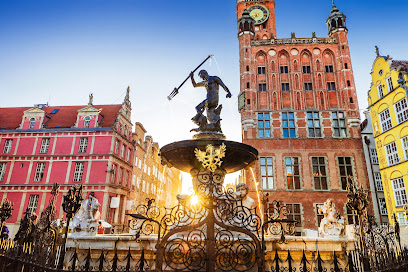
Westerplatte
Discover Westerplatte, the historic site where World War II began, featuring memorials and breathtaking views in Gdańsk, Poland.
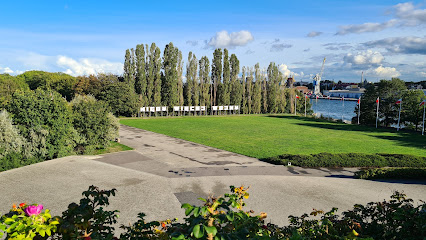
Brama Wyżynna
Discover the magnificence of Brama Wyżynna, Gdańsk's historical gateway that connects the past with the vibrant present.
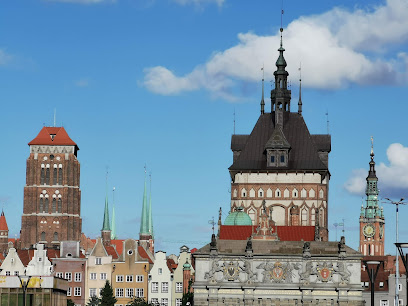
Basilica of St. Mary of the Assumption of the Blessed Virgin Mary in Gdańsk
Discover the breathtaking Basilica of St. Mary in Gdańsk, a Gothic masterpiece rich in history, art, and spirituality that enchants every visitor.
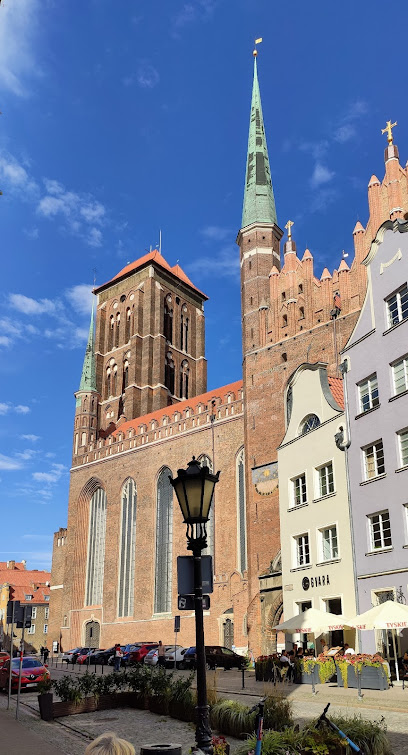
Long Market
Explore Long Market, a historical gem in Gdańsk, where stunning architecture meets vibrant culture.

Golden Gate
Explore the Golden Gate of Gdańsk, a historical landmark that embodies the city's rich heritage and architectural beauty, welcoming travelers to its enchanting streets.
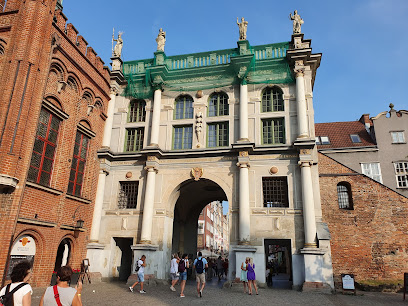
Monument to the Fallen Shipyard Workers of 1970
Explore the Monument to the Fallen Shipyard Workers in Gdańsk, a poignant tribute to resilience and a cornerstone of Poland's fight for freedom.
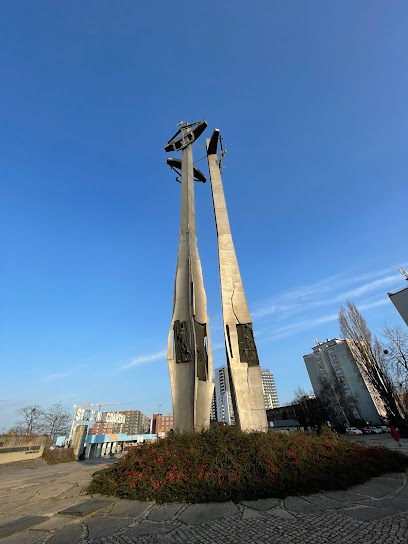
Artus Court
Discover the rich history and stunning architecture of Gdańsk at Artus Court, a museum that showcases the city's vibrant cultural heritage.

Museum of Gdańsk - Main Town Hall
Explore Gdańsk's vibrant history and culture at the Museum of Gdańsk, located in the iconic Main Town Hall, a treasure trove of art and heritage.
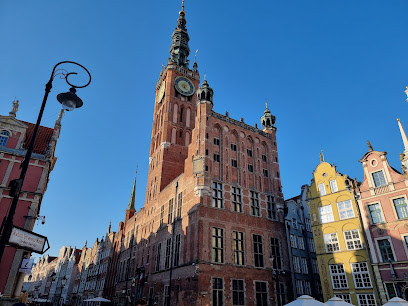
Green Gate
Explore Gdańsk's Green Gate: A Historical Museum Showcasing the City's Rich Artistic Heritage and Architectural Beauty.

Dariusz Kobzdej Square
Experience the vibrant culture and history at Dariusz Kobzdej Square, a must-visit tourist attraction in the heart of Gdańsk, Poland.
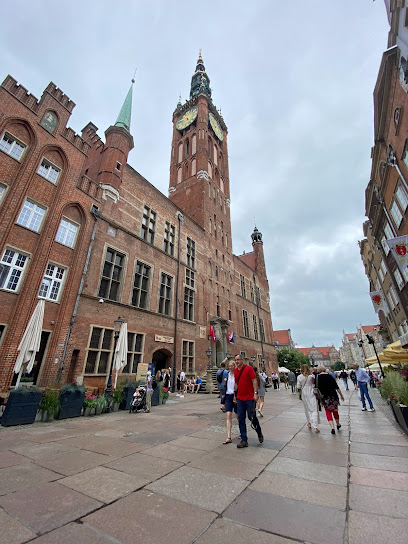
St. Mary's Gate
Explore St. Mary's Gate in Gdańsk, a stunning historical landmark that opens the door to the city's rich past and vibrant present.
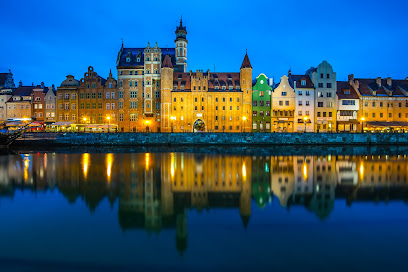
Swan Tower
Explore the breathtaking Swan Tower in Gdańsk, a historical castle offering stunning views and insights into the city's rich heritage and culture.
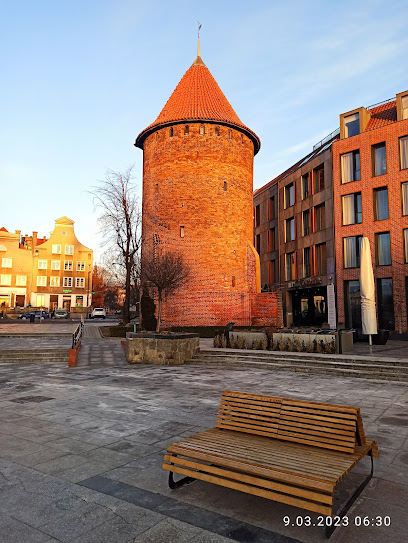
Stągwie Mleczne, Gdańsk
Explore the historic Stągwie Mleczne in Gdańsk, a testament to the city’s maritime legacy with stunning architecture and vibrant riverside views.
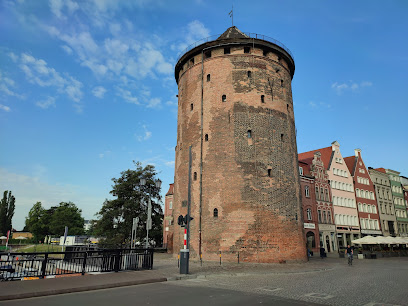
Straganiarska Gate
Discover the charm and history of Straganiarska Gate, a key landmark in Gdańsk, Poland, perfect for cultural exploration and picturesque moments.
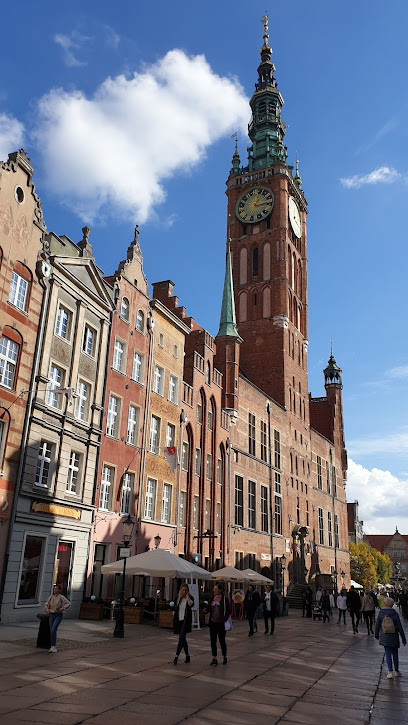
Unmissable attractions to see
Molo w Sopocie
Discover the charm of Sopot Pier, a stunning wooden structure offering breathtaking views, vibrant culture, and delightful seaside activities in Poland.
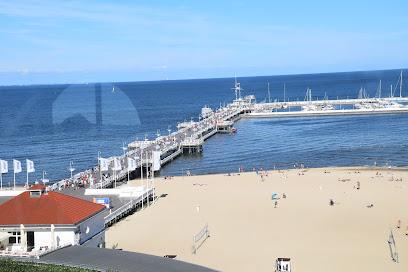
Malbork Castle
Discover Malbork Castle, a UNESCO World Heritage site, where history comes alive through stunning architecture and captivating tales of the past.
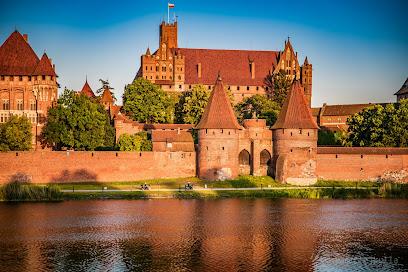
Museum of the Second World War
Explore the past at the Museum of the Second World War in Gdańsk, where history comes alive through interactive exhibits and personal narratives.
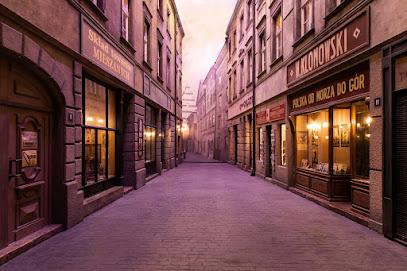
Molo w Brzeźnie
Discover the stunning vistas and vibrant atmosphere at Molo w Brzeźnie, Gdańsk's premier observation deck and seaside attraction.
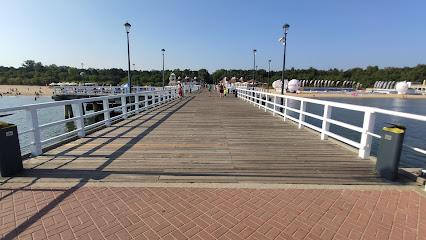
Neptune's Fountain
Discover the charm of Neptune's Fountain, a historical landmark in Gdańsk that embodies the city's rich maritime heritage and artistic beauty.
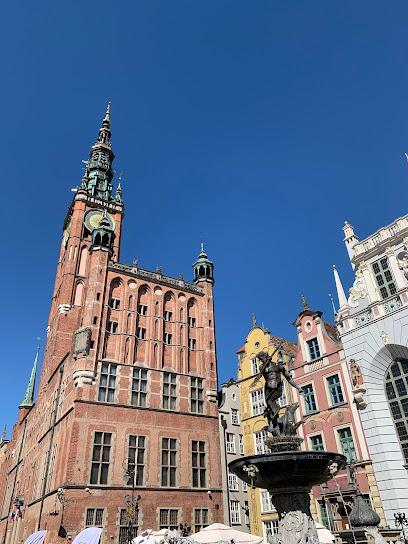
ZOO GDAŃSK
Explore the enchanting Gdańsk Zoo, a lush paradise of wildlife and adventure in the heart of the Oliwa district.
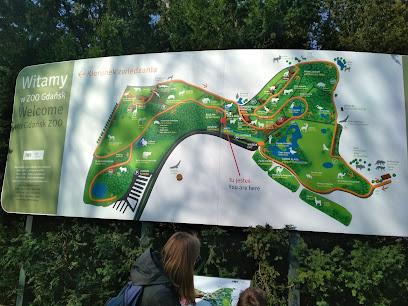
Oliwski Park
Explore the natural beauty and rich history of Oliwski Park, a serene oasis in Gdańsk that captivates visitors with its lush landscapes and cultural heritage.
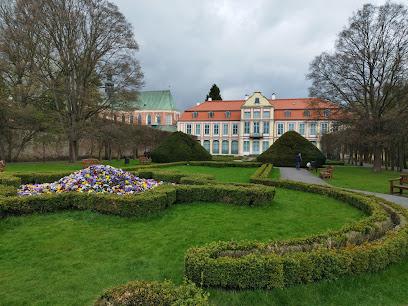
Orłowo Pier
Experience the beauty and tranquility of Orłowo Pier, a stunning seaside escape in Gdynia, Poland, perfect for relaxation and scenic views.
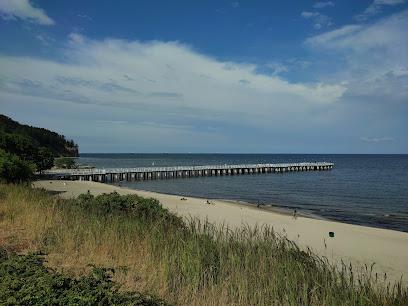
Westerplatte
Discover the historical significance of Westerplatte, a poignant monument to courage and resilience in Gdańsk, Poland.
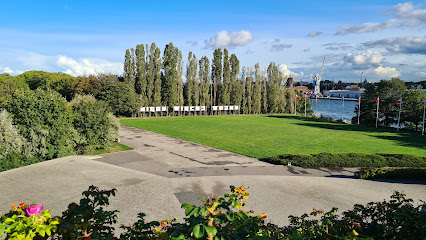
AmberSky
Discover breathtaking views of Gdańsk from the AmberSky Ferris wheel, where history meets stunning landscapes in Poland's enchanting port city.
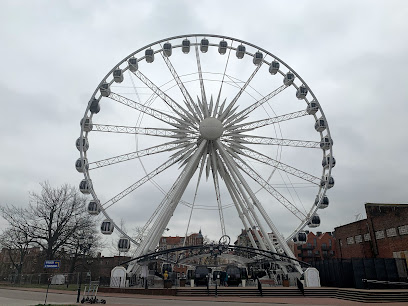
Bazylika Mariacka Wniebowzięcia Najświętszej Maryi Panny w Gdańsku
Explore the awe-inspiring Basilica of St. Mary in Gdańsk, a monumental Gothic church rich in history and stunning architectural beauty.
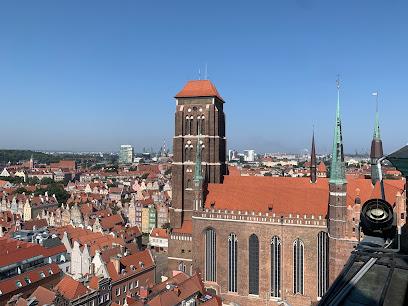
Długi Targ
Experience the charm of Długi Targ, Gdańsk's vibrant historical market filled with stunning architecture and rich cultural heritage.
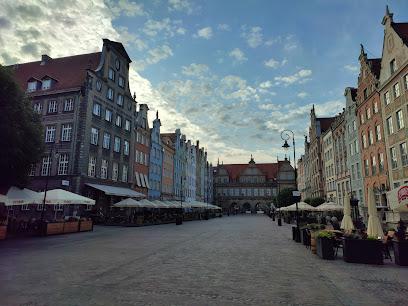
Golden Gate
Discover the Golden Gate in Gdańsk, an iconic historical landmark that highlights the city's rich past and architectural beauty.
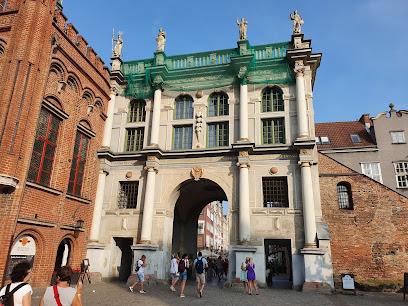
Museum Ship Dar Pomorza
Discover the historic Museum Ship Dar Pomorza in Gdynia, a maritime marvel offering a deep dive into Poland's seafaring heritage.
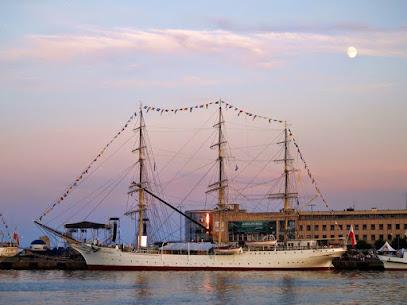
Musical Theatre of D. Baduszkowa
Discover the enchanting world of performing arts at the Musical Theatre of D. Baduszkowa in Gdynia, where captivating performances await every visitor.
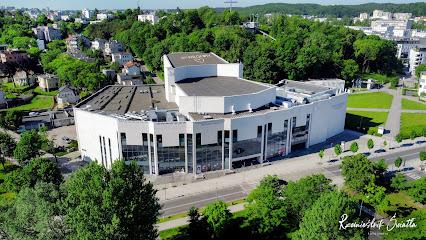
Essential places to dine
Pierogarnia Mandu Gdańsk Śródmieście
Experience authentic Polish dumplings at Pierogarnia Mandu in Gdańsk - where tradition meets flavor in every bite!
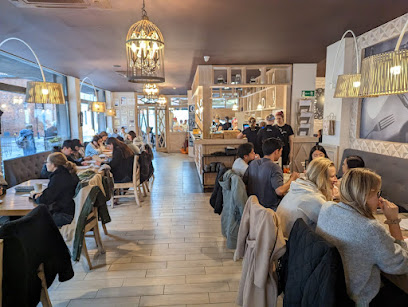
Chleb i Wino Stągiewna Gdańsk Restauracja
Discover the flavors of Europe at Chleb i Wino in Gdańsk - from exquisite Polish dishes to innovative cocktails in a cozy setting.
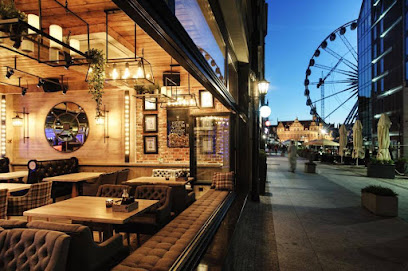
Billy’s American Restaurant.
Savor authentic American flavors at Billy’s American Restaurant in Gdańsk – where delicious cuisine meets inviting ambiance.
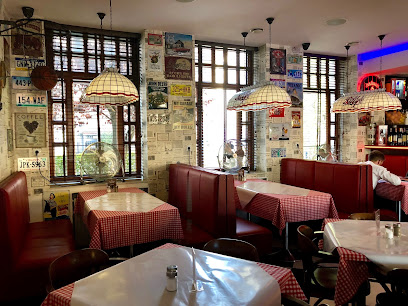
AïOLI inspired by Gdańsk
Discover AïOLI Inspired by Gdańsk - where European charm meets diverse culinary delights in the heart of Poland.
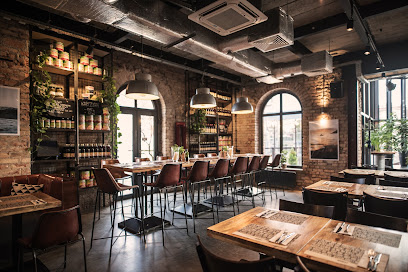
Pyra Bar
Experience the authentic taste of Poland at Pyra Bar in Gdańsk - a cozy self-service restaurant specializing in delicious potato dishes.
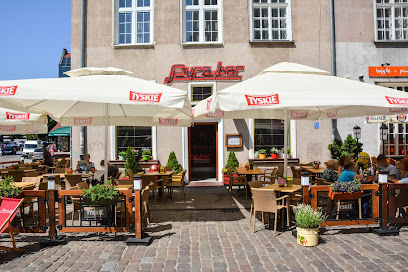
Chleb i Wino Chmielna Gdańsk Restauracja
Discover culinary delights at Chleb i Wino in Gdańsk – where European flavors meet local charm for an unforgettable dining experience.
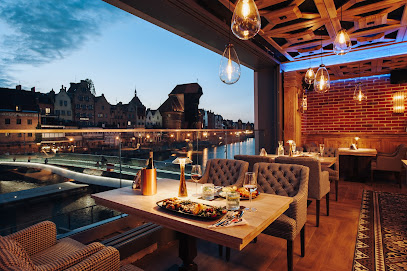
Pierogarnia Stary Młyn
Discover the heart of Polish cuisine at Pierogarnia Stary Młyn in Gdańsk - where every dumpling tells a story.
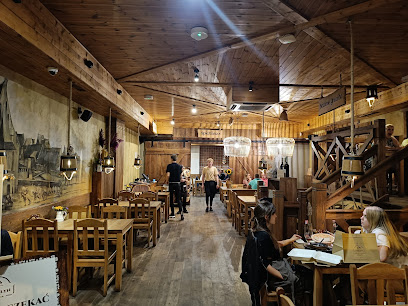
Whiskey in the Jar
Discover Gdańsk's culinary gem at Whiskey in the Jar, where exceptional steaks meet a vibrant atmosphere.
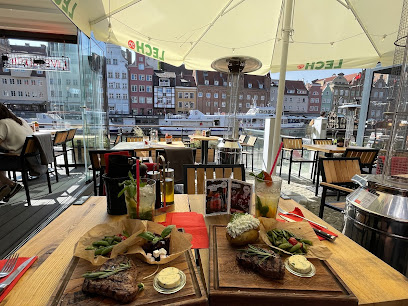
Swojski Smak
Experience authentic Polish cuisine at Swojski Smak in Gdańsk – where tradition meets taste in every dish.
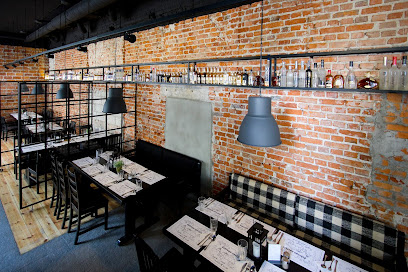
Hard Rock Cafe
Discover the ultimate American dining experience at Hard Rock Cafe Gdańsk – where great food meets rock 'n' roll!
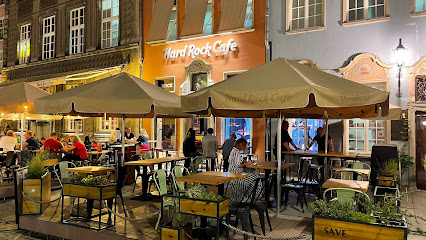
Słony Spichlerz
Discover Słony Spichlerz in Gdańsk – where European flavors meet Polish tradition in a cozy dining atmosphere.
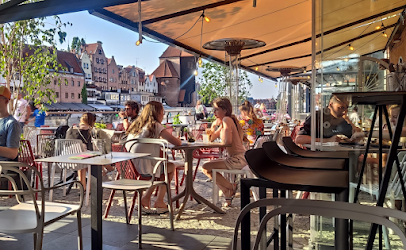
Gdański Bowke
Discover the essence of Polish cuisine at Gdański Bowke, where traditional flavors meet stunning waterfront views in Gdańsk.
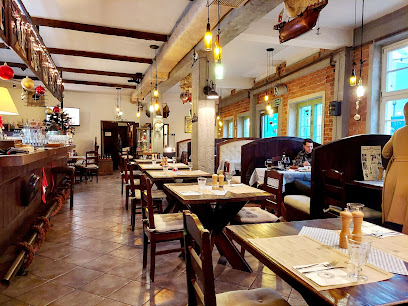
Restauracja KOS
Discover the taste of Poland at Restauracja KOS - where traditional cuisine meets modern charm in Gdańsk.
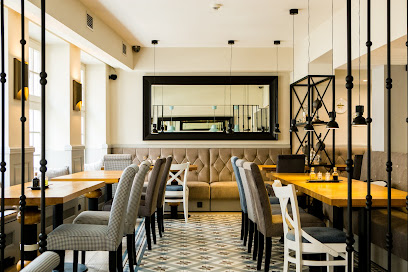
Pomelo Bistro Bar
Savor the flavors of Poland at Pomelo Bistro Bar in Gdańsk - where traditional meets modern in a delightful dining experience.
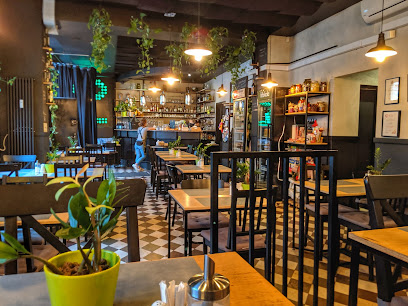
Familia Bistro
Discover authentic Lithuanian flavors at Familia Bistro in Gdańsk, where traditional dishes meet warm hospitality in a charming setting.
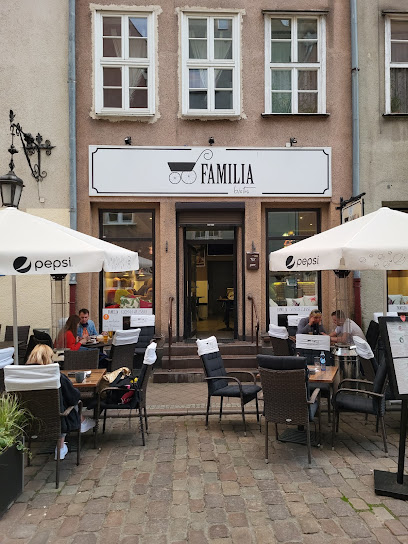
Markets, malls and hidden boutiques
Galeria Bałtycka
Explore Galeria Bałtycka in Gdańsk – a vibrant shopping mall offering fashion, beauty, and dining experiences for every taste.
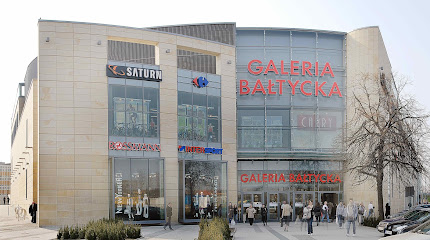
Galeria Madison
Discover Galeria Madison – Gdańsk's premier shopping mall with diverse shops, delightful dining, and vibrant atmosphere for every tourist.
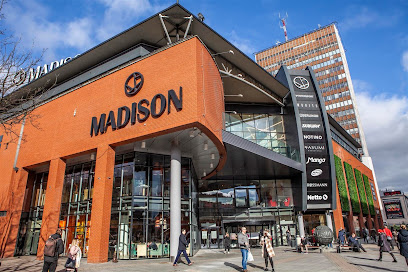
Designer Outlet Gdansk
Discover unbeatable deals on designer brands at the Designer Outlet Gdansk, a shopping haven for fashion lovers in Poland.
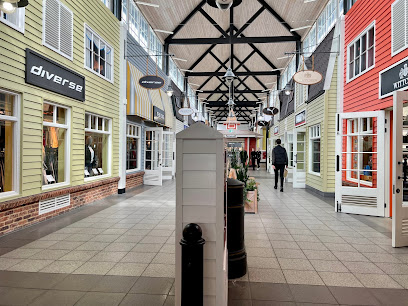
Galeria Metropolia
Explore Galeria Metropolia, the ultimate shopping and dining destination in Gdańsk, where modern retail meets vibrant entertainment.
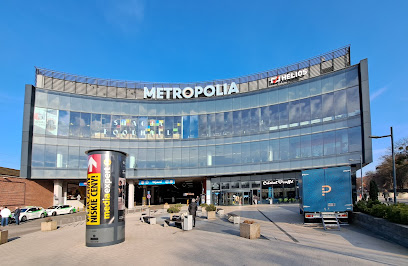
Forum Gdańsk
Discover Forum Gdańsk, a vibrant shopping mall offering a diverse mix of stores, dining, and entertainment in the heart of the city.
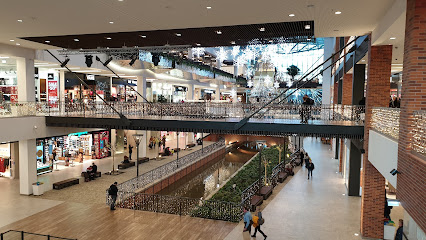
EASTEND
Shop the latest in fashion at Eastend, Gdańsk's top destination for stylish clothing and footwear in a modern internet shopping experience.
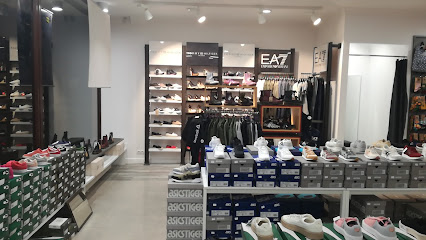
TK Maxx
Explore TK Maxx in Gdańsk for unbeatable deals on fashion and home goods, perfect for savvy shoppers seeking unique finds!
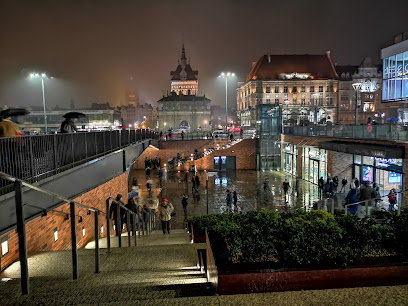
Galeria Przymorze
Discover a vibrant shopping experience at Galeria Przymorze in Gdańsk, Poland, where retail, dining, and entertainment await.
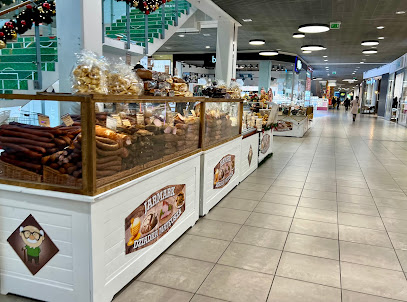
Yatta.pl
Explore Yatta.pl in Gdańsk for an extensive collection of comics and graphic novels in a vibrant and welcoming atmosphere.
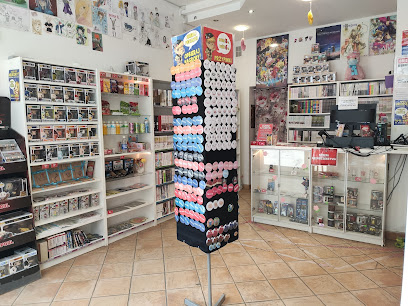
Lilou
Discover Lilou in Gdańsk, where exquisite craftsmanship meets elegant design in a charming jewelry store experience.
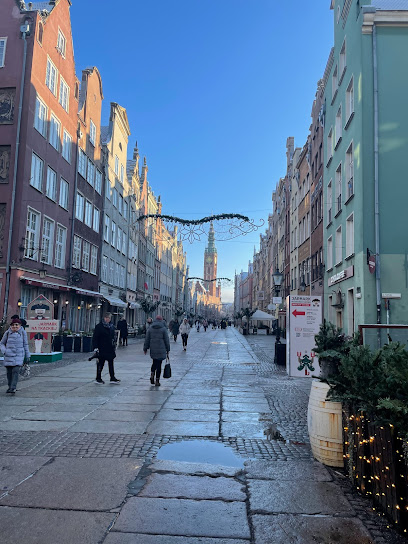
iDream Apple Premium Reseller
Discover the latest Apple products at iDream in Gdańsk—where technology meets style in the heart of the city.
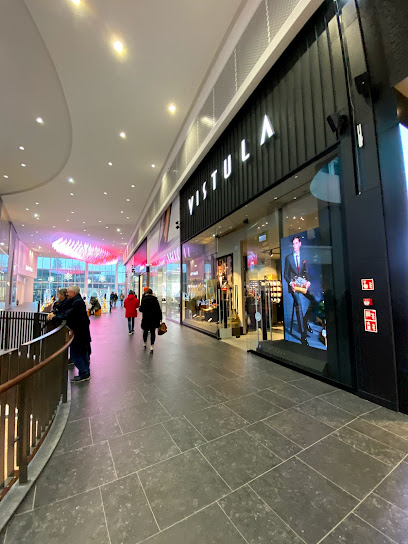
Flying Tiger Copenhagen
Explore Flying Tiger Copenhagen in Gdańsk for unique gifts, home goods, and fun accessories that embody Danish creativity and affordability.
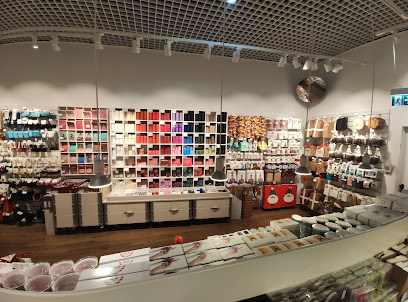
Indorshop.pl
Discover the unique blend of cannabis products and collectibles at Indorshop.pl, a must-visit general store in Gdańsk, Poland.
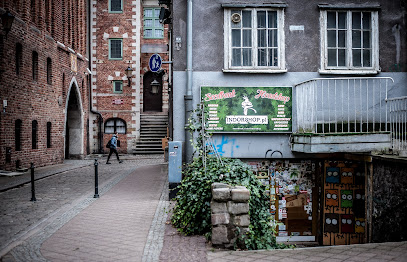
Sklep Pańska
Explore Sklep Pańska in Gdańsk for unique pottery and captivating posters, perfect souvenirs to cherish your memories of this beautiful city.
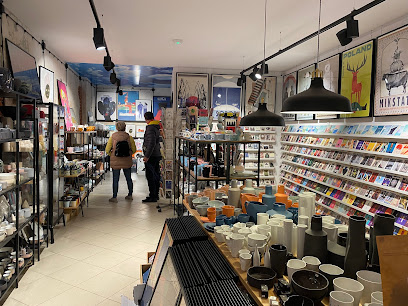
Galilu neoperfumeria Gdańsk
Discover the art of fragrance at Galilu Neoperfumeria in Gdańsk, where every scent tells a story waiting to be explored.
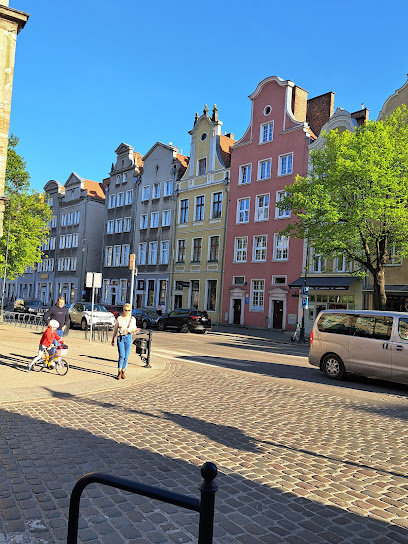
Essential bars & hidden hideouts
Pub Red Light
Experience Gdańsk's vibrant brewpub culture at Pub Red Light with unique craft beers and a welcoming atmosphere.
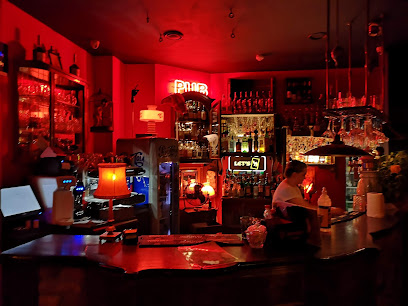
No To Cyk
Discover No To Cyk, Gdańsk's vibrant brewpub, where craft beer meets delicious food in a cozy atmosphere perfect for relaxation and socializing.
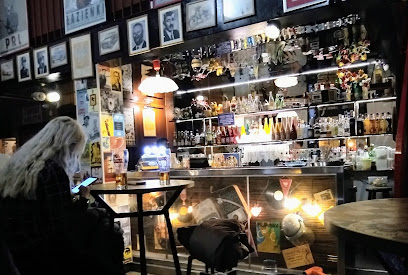
Pijalnia Wódki I Piwa
Experience the vibrant nightlife and authentic Polish beverages at Pijalnia Wódki I Piwa in Gdańsk's bustling heart.
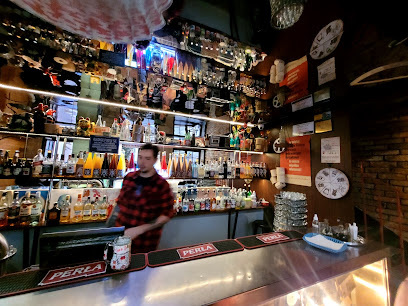
U Szkota
Experience the authentic Irish pub atmosphere at U Szkota in Gdańsk, where cocktails, live music, and good vibes await.
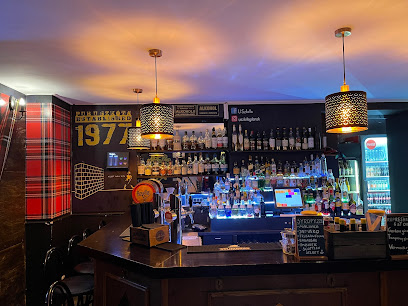
Wiśniewski Gdańsk
Discover the lively atmosphere of Wiśniewski Gdańsk, where elegant lounge vibes meet an energetic cocktail bar and nightclub experience.
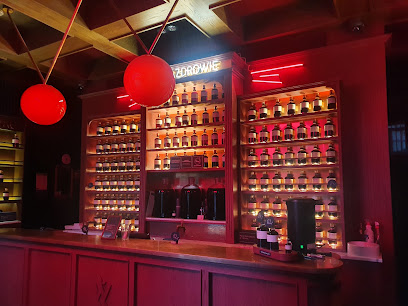
Labeerynt
Discover Labeerynt, Gdańsk's premier brewpub, where local craft beers meet delicious cuisine in a cozy atmosphere.
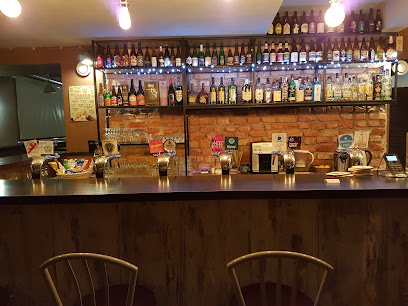
Flisak '76
Discover Flisak '76 in Gdańsk, where innovative cocktails meet vibrant nightlife in a stylish setting.
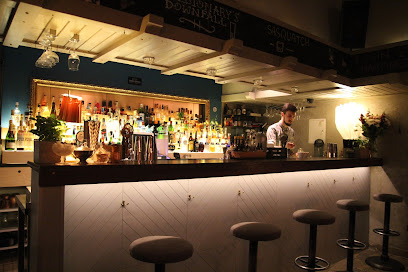
Pub Pixel
Discover the lively cocktail scene at Pub Pixel, a trendy bar in Gdańsk offering unique drinks and a vibrant atmosphere perfect for socializing.
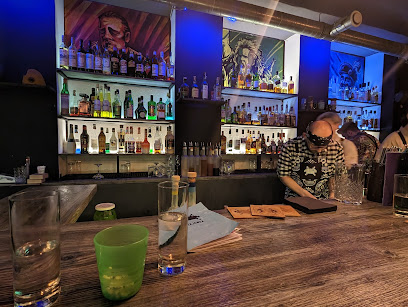
Tiki Jungle
Experience the vibrant spirit of the tropics at Tiki Jungle, Gdańsk's premier bar for innovative cocktails and unforgettable ambiance.
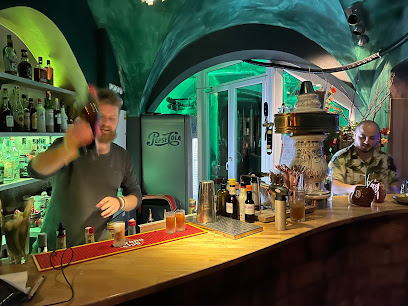
Mała Sztuka Cocktail Bar - Gdańsk Śródmieście
Experience Gdańsk's nightlife at Mała Sztuka Cocktail Bar, where unique cocktails meet a cozy atmosphere in the heart of the city.
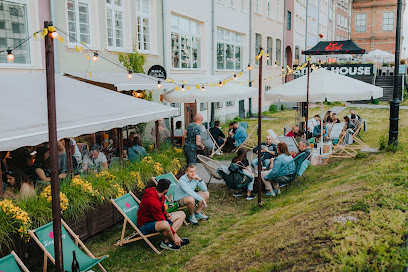
Craft Cocktails - Cocktail Bar
Experience the art of mixology at Craft Cocktails, Gdańsk's premier cocktail bar offering unique flavors and a vibrant atmosphere.
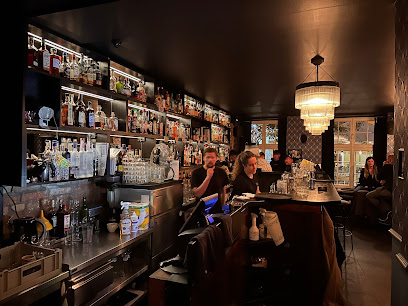
LUMI SHOTBAR
Discover LUMI SHOTBAR in Gdańsk: A vibrant cocktail bar offering creative drinks and a lively social atmosphere in a charming historic setting.
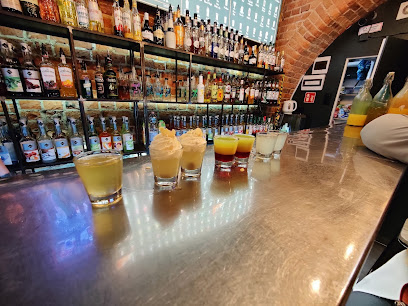
Pub Polskie Kino
Discover the heart of Gdańsk at Pub Polskie Kino, where craft brews and local culture come together in a vibrant atmosphere.
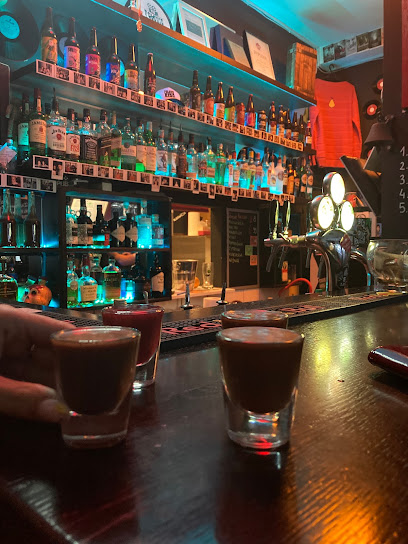
Irish Pub Piwnica
Discover the heart of Irish culture at Irish Pub Piwnica, where good food, great drinks, and lively entertainment await you in Wejście.
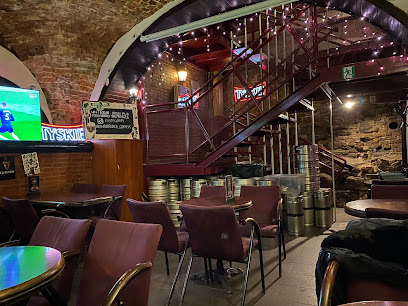
Local Phrases
-
- HelloCześć
[Cheshch] - GoodbyeDo widzenia
[Do veedzenya] - YesTak
[Tak] - NoNie
[Nye] - Please/You're welcomeProszę
[Prosheh] - Thank youDziękuję
[Jenkoo-yeh] - Excuse me/SorryPrzepraszam
[Pzheprasham] - How are you?Jak się masz?
[Yak sheh mash] - Fine. And you?Dobrze. A ty?
[Dobzheh. A ti] - Do you speak English?Czy mówisz po angielsku?
[Chy moovish po angeelskoo] - I don't understandNie rozumiem
[Nye rozoomyem]
- HelloCześć
-
- I'd like to see the menu, pleaseChciałbym zobaczyć menu, proszę
[Hchyawbim zobachich menu, prosheh] - I don't eat meatNie jem mięsa
[Nye yem myensa] - Cheers!Na zdrowie!
[Na zdrovyeh] - I would like to pay, pleaseChciałbym zapłacić, proszę
[Hchyawbim zapwacheech, prosheh]
- I'd like to see the menu, pleaseChciałbym zobaczyć menu, proszę
-
- Help!Pomocy!
[Pomotsee] - Go away!Idź sobie!
[Eej sobieh] - Call the Police!Zadzwoń po policję!
[Zadzvon po politsyeh] - Call a doctor!Zadzwoń po lekarza!
[Zadzvon po lekarza] - I'm lostZgubiłem się
[Zgoobee-wem sheh] - I'm illJestem chory
[Yestem khor-ih]
- Help!Pomocy!
-
- I'd like to buy...Chciałbym kupić...
[Hchyawbim koopich] - I'm just lookingTylko się rozglądam
[Tzikwo sheh rozhwondam] - How much is it?Ile to kosztuje?
[Eeleh to koshtoo-yeh] - That's too expensiveTo jest za drogie
[To yest za drog-yeh] - Can you lower the price?Możesz obniżyć cenę?
[Mozhesh obneewich chenoo]
- I'd like to buy...Chciałbym kupić...
-
- What time is it?Która jest godzina?
[Ktoora yest godzeena] - It's one o'clockJest pierwsza
[Yest pyervshah] - Half past (10)Pół do dziesiątej
[Poo do dzyesyontay] - MorningRano
[Rano] - AfternoonPopołudnie
[Popowoowdnyeh] - EveningWieczór
[Vye-choor] - YesterdayWczoraj
[Vcho-ryai] - TodayDziś
[Jis] - TomorrowJutro
[Yootro] - 1Jeden
[Yeden] - 2Dwa
[Dva] - 3Trzy
[Tshi] - 4Cztery
[Chterih] - 5Pięć
[Piench] - 6Sześć
[Sheshch] - 7Siedem
[Shedem] - 8Osiem
[Oshyem] - 9Dziewięć
[Dzhevyench] - 10Dziesięć
[Dzyesyonts]
- What time is it?Która jest godzina?
-
- Where's a/the...?Gdzie jest...
[Gdzhe yest] - What's the address?Jaki jest adres?
[Yaki yest adres] - Can you show me (on the map)?Czy możesz mi pokazać (na mapie)?
[Chy mozhesh mi pokazach (na mahpee)] - When's the next (bus)?Kiedy jest następny (autobus)?
[Kyedy yest nastepny (owto-boos)] - A ticket (to ....)Bilet (do ....)
[Beelet (do)]
- Where's a/the...?Gdzie jest...
History of Gdansk
-
Gdansk, originally known as Danzig, traces its origins back to the 10th century. The city was founded by the Pomeranian Duke Mściwoj I and quickly became an important center for trade due to its strategic location along the Baltic Sea. By the 13th century, Gdansk was a bustling port town, attracting merchants from across Europe.
-
In 1308, Gdansk was taken over by the Teutonic Knights, a powerful military order. The city's prominence grew as it became a member of the Hanseatic League, a commercial and defensive confederation of merchant guilds and market towns in Northwestern and Central Europe. This period marked the beginning of Gdansk's golden era, with flourishing trade in grain, timber, and amber.
-
In 1454, Gdansk pledged allegiance to the Polish King Casimir IV, leading to the Thirteen Years' War between Poland and the Teutonic Order. After the war, Gdansk gained considerable autonomy under the Polish crown, becoming one of the wealthiest cities in the Polish-Lithuanian Commonwealth. The city enjoyed a period of prosperity, marked by the construction of beautiful Gothic and Renaissance buildings.
-
The late 18th century saw the partitions of Poland by Russia, Prussia, and Austria, which drastically altered Gdansk's status. In 1793, the city was annexed by the Kingdom of Prussia. This period of Prussian rule introduced significant changes to Gdansk's administration and economy, but also led to periods of unrest and upheaval.
-
After World War I, the Treaty of Versailles established Gdansk as the Free City of Danzig, a semi-autonomous city-state under the protection of the League of Nations. This unique status lasted until 1939, during which time Gdansk was a focal point of tension between Germany and Poland, eventually culminating in the city's annexation by Nazi Germany at the outset of World War II.
-
World War II brought immense destruction to Gdansk. The city was heavily bombed and witnessed fierce fighting, particularly during the Battle of Westerplatte in 1939, one of the war's first battles. After the war, Gdansk was incorporated into Poland, and a massive reconstruction effort began to restore its historic architecture and infrastructure.
-
In the 1980s, Gdansk became the birthplace of the Solidarity movement, a pivotal force in the struggle against Communist rule in Poland. Led by Lech Wałęsa, the movement began in the Gdansk Shipyard and rapidly grew into a nationwide campaign for workers' rights and political reform. Solidarity played a crucial role in the eventual fall of Communism in Poland and Eastern Europe.
-
Today, Gdansk is a vibrant city that blends its rich historical heritage with modernity. It is a major cultural, scientific, and economic center in Poland, known for its picturesque Old Town, thriving maritime industry, and dynamic cultural scene. Landmarks such as St. Mary's Church, the Neptune Fountain, and the Gdansk Crane stand as testaments to the city's enduring legacy.
Gdansk Essentials
-
Gdańsk is well-connected by air, rail, and road. The Gdańsk Lech Wałęsa Airport (GDN) is the main international gateway, located about 12 km from the city center. It offers numerous flights to major European cities. The city is also accessible via train, with Gdańsk Główny being the central station, connecting to other Polish cities and neighboring countries. If you prefer road travel, Gdańsk is connected by major highways and bus routes.
-
Public transportation in Gdańsk is efficient and includes buses, trams, and trains operated by ZTM Gdańsk. Tickets can be purchased at kiosks, ticket machines, or via mobile apps. Taxis and ride-sharing services like Uber are also available. For a more scenic route, you can explore parts of the city by bike; there are several bike rental shops and dedicated cycling paths.
-
The official currency in Poland is the Polish Złoty (PLN). Most hotels, restaurants, and shops in Gdańsk accept credit and debit cards, but it's advisable to carry some cash for smaller establishments and street vendors. ATMs are widely available throughout the city. Currency exchange offices (kantors) offer competitive rates and are also readily accessible.
-
Gdańsk is generally a safe city for tourists. However, like any other tourist destination, it is important to take standard precautions. Avoid walking alone in poorly lit areas at night and be aware of pickpockets in crowded places like public transport and tourist attractions. Specific areas to exercise extra caution include the vicinity of the main train station and certain parts of the Przymorze district.
-
In case of emergency, dial 112, the European emergency number, for immediate assistance. Gdańsk has several hospitals and medical facilities, including the University Clinical Center, which offers comprehensive medical services. Pharmacies are widely available for minor health issues. Ensure you have travel insurance that covers medical emergencies.
-
Fashion: Do dress comfortably but modestly. Avoid overly revealing clothing, especially when visiting religious sites. Religion: Do respect local customs and traditions. When visiting churches, dress modestly and remain quiet. Public Transport: Do validate your ticket before boarding. Don't eat or drink on public transport. Greetings: Do greet people with a handshake. A simple 'Dzień dobry' (Good day) is polite. Eating & Drinking: Do try local dishes like pierogi and seafood. Don't skip tipping; a 10% tip is customary in restaurants.
-
To experience Gdańsk like a local, visit the Oliwa Park and the surrounding area for a peaceful retreat. Explore the Wrzeszcz district, known for its trendy cafes and shops. Attend a performance at the Shakespeare Theatre or the Baltic Opera for a cultural experience. Don't miss the St. Dominic's Fair in August, one of the largest and oldest fairs in Europe, offering a mix of local crafts, food, and entertainment.
Trending Landmark in Gdansk
-
Neptune's Fountain
-
Westerplatte
-
Brama Wyżynna
-
Basilica of St. Mary of the Assumption of the Blessed Virgin Mary in Gdańsk
-
Long Market
-
Golden Gate
-
Monument to the Fallen Shipyard Workers of 1970
-
Artus Court
-
Museum of Gdańsk - Main Town Hall
-
Green Gate
-
Dariusz Kobzdej Square
-
St. Mary's Gate
-
Swan Tower
-
Stągwie Mleczne, Gdańsk
-
Straganiarska Gate
Nearby Cities to Gdansk
-
Things To Do in Sopot
-
Things To Do in Elblag
-
Things To Do in Olsztyn
-
Things To Do in Bydgoszcz
-
Things To Do in Torun
-
Things To Do in Klaipėda
-
Things To Do in Poznan
-
Things To Do in Suwalki
-
Things To Do in Warsaw
-
Things To Do in Liepaja
-
Things To Do in Szczecin
-
Things To Do in Lodz
-
Things To Do in Kalmar
-
Things To Do in Marijampolė
-
Things To Do in Bialystok

















